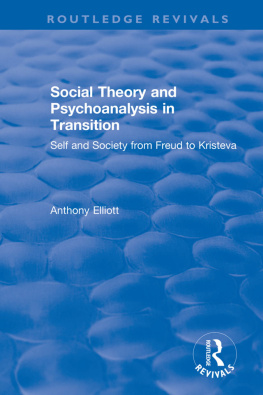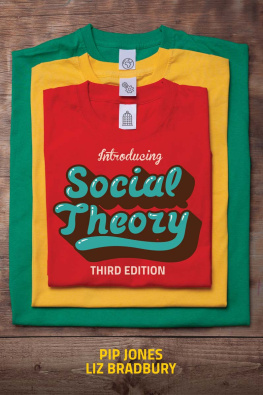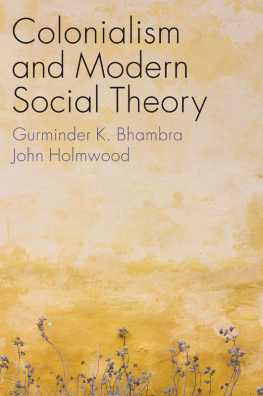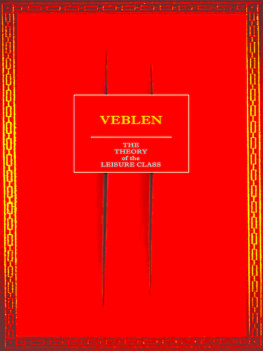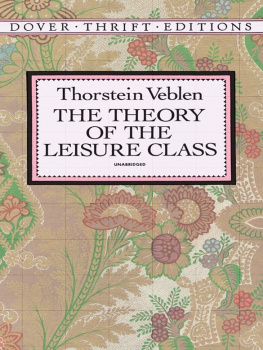Social Theory
Social Theory provides a sophisticated yet highly accessible introduction to classical and contemporary social theories. The authors concise presentation allows students and instructors to focus on central themes. The text lets theorists speak for them selves, presenting key passages from each theorists corpus, bringing theory to life. The approach allows instructors the opportunity to help students learn to unpack sometimes complex prose, just as it offers inroads to class discussion. Chapters on Addams and early feminism, on Habermas and the Frankfurt School, on Foucault, and on globalization and social movements round out contemporary coverage. The book presents and explains key theories, just as it provides an introduction to central debates about them.
Berch Berberoglu is Professor of Sociology and Director of Graduate Studies in the Department of Sociology at the University of Nevada, Reno.
First published 2017
by Routledge
711 Third Avenue, New York, NY 10017
and by Routledge
2 Park Square, Milton Park, Abingdon, Oxon, OX14 4RN
Routledge is an imprint of the Taylor & Francis Group, an informa business
2017 Taylor & Francis
The right of Berch Berberoglu to be identified as author of this work has been asserted by him in accordance with sections 77 and 78 of the Copyright, Designs and Patents Act 1988.
All rights reserved. No part of this book may be reprinted or reproduced or utilised in any form or by any electronic, mechanical, or other means, now known or hereafter invented, including photocopying and recording, or in any information storage or retrieval system, without permission in writing from the publishers.
Trademark notice: Product or corporate names may be trademarks or registered trademarks, and are used only for identification and explanation without intent to infringe.
Library of Congress Cataloging in Publication Data
Names: Berberoglu, Berch, author.
Title: Social theory: classical and contemporary: a critical perspective / Berch Berberoglu.
Description: 1 Edition. | New York: Routledge, 2016. | Includes bibliographical
references and index.
Identifiers: LCCN 2016030682| ISBN 9781138125483 (hardback) |
ISBN 9781138125490 (paperback) | ISBN 9781315647487 (ebook)
Subjects: LCSH: SociologyPhilosophy. | SociologyMethodology. |
SociologyClassification.
Classification: LCC HM585 .B47 2016 | DDC 301.01dc23
LC record available at https://lccn.loc.gov/2016030682
ISBN: 978-1-138-12548-3 (hbk)
ISBN: 978-1-138-12549-0 (pbk)
ISBN: 978-1-315-64748-7 (ebk)
Typeset in Caslon
by Sunrise Setting Ltd, Brixham, UK
Contents
Scholars through the ages have developed social theories to guide them through the process of attaining knowledge to understand society and social phenomena that surround them. The adoption of a theoretical approach in social analysis, especially one that is critical and challenges long-held assumptions about the social world, is therefore an important first step in developing an informed understanding of society and social relations.
My interest in social theory goes back more than four decades, to the early 1970s, when I was first introduced to the great social theorists of the late nineteenth and early twentieth centuries in my undergraduate theory course taught by Larry Reynolds at Central Michigan University. Through his inspiring and engaging lectures on Emile Durkheim, Max Weber, Karl Marx, and other giants of classical social theory, I came to confront some of the central social issues of our time. Later, in a graduate seminar on contemporary social theory, I learned from Larry about the raging controversies in American sociologyfrom its early beginnings to the Chicago School to Talcott Parsons, Robert Merton, and other proponents of modern functionalism, which dominated the postwar academic scene, to C. Wright Mills and the critical and radical theorizing and activism of a new generation of sociologists in the 1960s, who made an important and lasting contribution to the discipline.
The knowledge I gained through my formal theoretical training in these formative years, however, goes much beyond what I learned about individual theorists, for my broad exposure to social theory during this critical period helped establish a solid foundation for my theoretical studies in the years that followed. For his pivotal role in introducing me to some of the central theoretical positions that I have come to adopt over the years, and in this way for setting me on a most valuable intellectual journey, I thank my mentor, colleague, and friend, Larry Reynolds, in appreciation of his contribution to my theoretical development.
During my graduate studies in the early to mid-1970s, first at the State University of New York at Binghamton and then at Central Michigan University, where I attended seminars and courses taught by James Petras and Blain Stevenson, respectively, and later at the University of Oregon, where I studied toward my doctoral degree under Albert Szymanski, my exposure to and interest in social theory, centered in political economy and class analysis, came to define the parameters of my theoretical orientation in sociology. In this more mature period in my thinking, I came to adopt a more developed, dialectical conception of social analysis informed by the principles of historical materialism. It was also during this most critical period in my intellectual development that I began to see the central, indeed most fundamental, role played by social class in society. Analysis of class structure, class conflict, and class struggle, defined in terms of relations of production, became the basis of my approach to social theory and social research, which continues to inform my theoretical perspective and intellectual work. Throughout this book, the analysis of the positions of each of the classical and contemporary theorists discussed is carried out from the vantage point of this most fundamental social phenomenonclass.
This book was written with the aim of introducing to the beginning college student some of the major classical and contemporary social theorists of the late nineteenth to early twenty-first centuries. Given both the number of prominent social theorists and the scope of the issues addressed over the past century and a half, this book is necessarily selective in both its focus and the depth of its analysis of questions raised by a select number of theorists I have decided to include. Moreover, the analysis presented is both interpretative and critical in its approach toward the subject matter. It is hoped that such an approach will stimulate the beginning student to ponder the critical issues raised by these theorists in a fresh way. In this sense, the book is not intended as a definitive text in social theory but as a supplemental guide for use in introductory sociology and social theory courses to help familiarize students with the works of some of the most prominent social theorists of our time.
The 30 chapters that make up this book were designed to be brief, concise, and to the point, which is expressed whenever possible in the words of the theorists concerned so that the central ideas of each can be presented in their original form. Thus, this introductory book on social theory was designed to serve as an initial stepping-stone to more in-depth analyses of these and other theorists usually covered in more advanced texts specifically prepared for advanced undergraduate and graduate theory courses in sociology. If this book succeeds in stimulating in the beginning student a modicum of interest in social theoryone that will lead to further theoretical studiesthen the purpose of this project will have been achieved.


